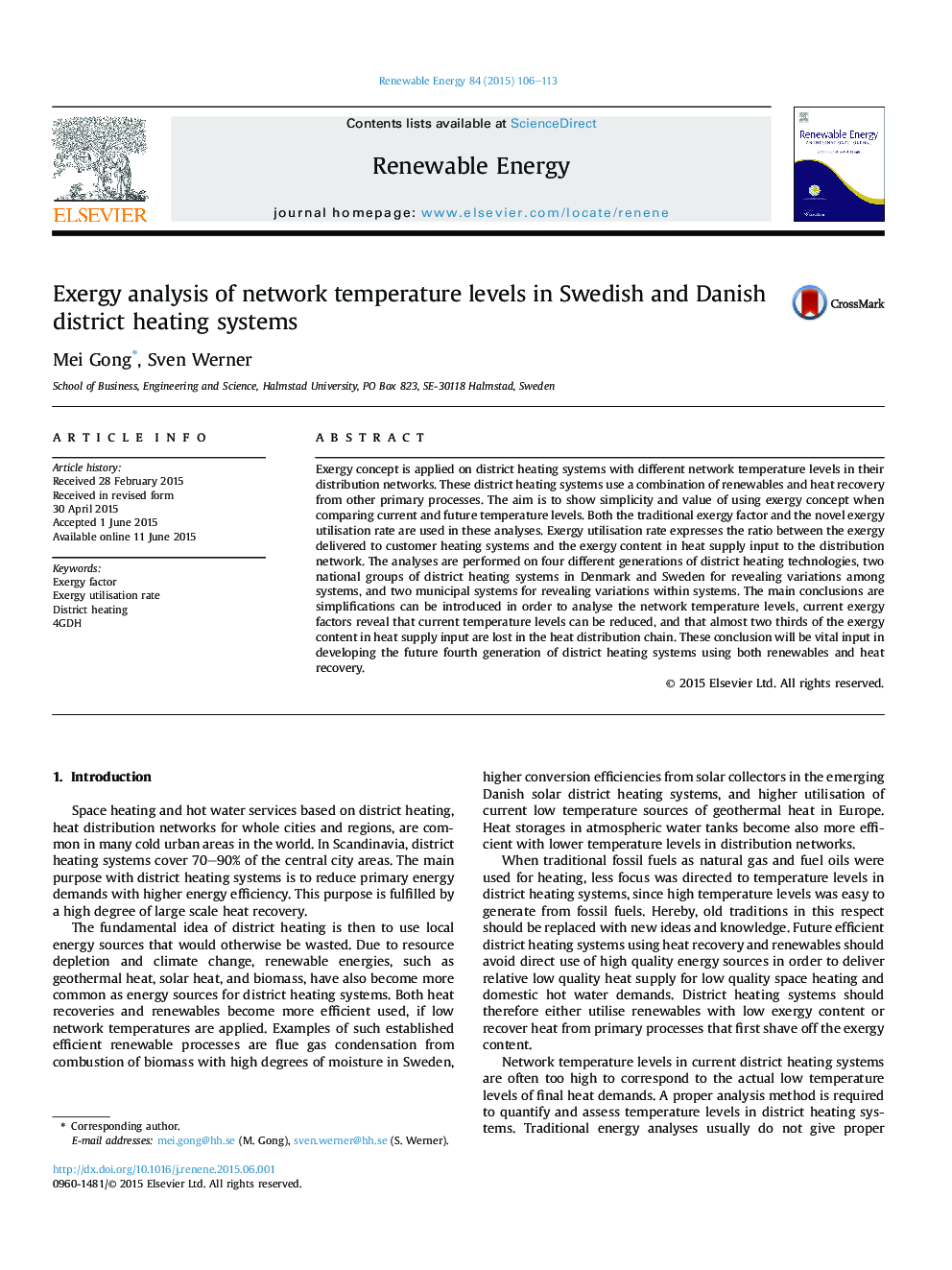| Article ID | Journal | Published Year | Pages | File Type |
|---|---|---|---|---|
| 299886 | Renewable Energy | 2015 | 8 Pages |
•Previous generations of district heating technologies had higher exergy factors than current and future generations.•Future lower exergy factors will give higher use of low exergy renewable sources.•Lower exergy factors will also give higher exergy extraction in connected CHP plants and industrial processes.•Novel exergy utilisation rate defined as the proportion of exergy required by customer demands for heat supplied into networks.•Estimated exergy utilisation rates reveal considerable exergy losses in heat distribution networks.
Exergy concept is applied on district heating systems with different network temperature levels in their distribution networks. These district heating systems use a combination of renewables and heat recovery from other primary processes. The aim is to show simplicity and value of using exergy concept when comparing current and future temperature levels. Both the traditional exergy factor and the novel exergy utilisation rate are used in these analyses. Exergy utilisation rate expresses the ratio between the exergy delivered to customer heating systems and the exergy content in heat supply input to the distribution network. The analyses are performed on four different generations of district heating technologies, two national groups of district heating systems in Denmark and Sweden for revealing variations among systems, and two municipal systems for revealing variations within systems. The main conclusions are simplifications can be introduced in order to analyse the network temperature levels, current exergy factors reveal that current temperature levels can be reduced, and that almost two thirds of the exergy content in heat supply input are lost in the heat distribution chain. These conclusion will be vital input in developing the future fourth generation of district heating systems using both renewables and heat recovery.
